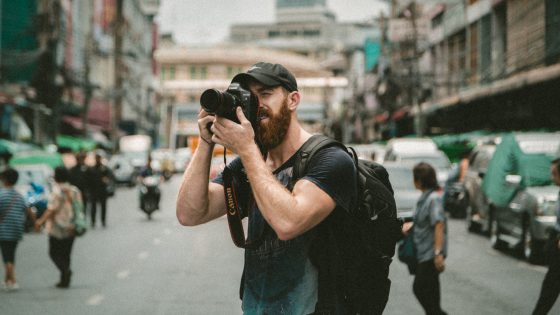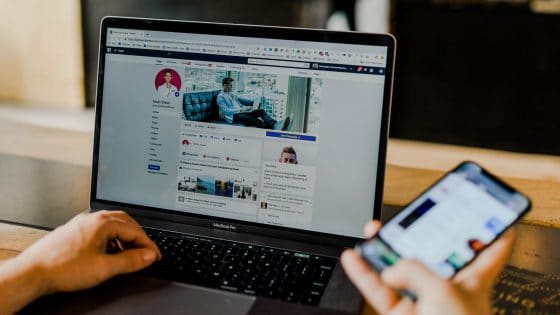Nearly every successful marketing professional realizes that the rules to the game of marketing are changing at a pace more rapid than any before. New technologies have completely altered the ways in which loyal customers and potential buyers are connecting with products and brands. These changes are at once giving consumers greater control over the types of things they choose to purchase while giving companies a greater opportunity to practice targeted marketing strategies to increase sales.
But there are some industries that have been able to adapt and take advantage of newer marketing techniques in unique and highly effective ways. For instance, the beauty industry has been one of the quickest and most successful at adopting a marketing strategy that puts influencers at the forefront. Doing so has broadened beauty’s market reach while simultaneously deepening bonds of brand loyalty.
Marketing professionals that are looking to incorporate the use of influencers in their marketing strategies should look for no better example than the one provided by the beauty industry. But how exactly are these influencers with no marketing experience creating such dedicated followings? Learning these tricks is perhaps the biggest lesson of all.
Capitalize on Big Data
Those leading the way in marketing are familiar with the idea of big data. Many of the biggest corporations are using big data to dive deeper into the preferences of their customer base. This information can help determine not only the demographic makeup of the customers that are purchasing certain products but also the specifics about the products they are choosing.
When it comes to capitalizing on the pull of certain influencers, big data can also come into play. For instance, different beauty influencers will be able to better target certain demographics of potential customers based on the influencer’s current following. Likewise, different influencers will have certain strengths; one may be more experienced with eye makeup, while another may have a following that loves her advice on skincare.
Analyzing big data as it relates to the influencer’s profiles is the role of the marketing professional. This information can be used to determine which products the company wants a particular influencer to start pushing. It can also help determine products that should be expanded into a broader demographic.
Use Science
The rise of the internet and social media has made it easier than ever for an interested customer to research the social, environmental, and scientific background of a particular product. Technological phenomena have led to a greater interest in this type of information than ever before. Overall, it has really put a lot of industries on the defence for the social, environmental, and health concerns associated with their products.
In this regard, few industries have been hit as hard as the beauty industry. Customers are deeply concerned about the background of the products they are using. In particular, customers want to know whether beauty products have been tested on animals and if the hidden chemicals in them could cause more harm than good. Because of this, the beauty industry has been quick to make the most of the power science has in their influencer-based marketing.
Beauty science influencers are those that are using and rating products based on the science behind them as well as the product’s ability to do what it says it will. Oftentimes these influencers will research products and produce videos explaining complicated science in a way the average person can easily digest. They will cover topics including:
- Active and inactive ingredients in a product and the positives and negatives of each
- How ingredients are processed to give the desired result
- Where ingredients come from and whether they are produced in a sustainable manner
- Whether preservatives are used in a certain product and how that might impact a product’s shelf life
- How the product was tested and what the results really mean
- If the product was produced sustainably and if there are ways the company could improve its sustainable practices
These trends towards science have uncovered a number of flaws in the products produced by certain companies. However, this type of marketing has also put the power into the consumer’s hands and pushed companies to make their products better. The beauty industry still has some improvements to make, but it has made profound advancements towards healthier, more sustainable, and more socially just products.
Make a Connection
Perhaps one of the most obvious yet least tangible things that marketing professionals can learn from influencer marketing in the beauty industry is how to make a connection with an audience. Many of the influencers are relatively random people with limited means, yet they’ve managed to build a substantial following of dedicated people. This doesn’t come from throwing money at it or advertising, rather, it comes from a real connection.
Potential customers choose to follow, like, and even try out the products their influencer is recommending because that influencer feels like a real and relatable person. They do the research and try out the products before recommending them, hence building a strong bond of trust with their followers. A recommendation from someone you trust will sell tenfold more products than an advertisement from a large company.
Given this, marketing professionals must strive to learn from influencers and create a real connection with their followers and loyal customers. The trust-building process takes time, but it can be done by using science, being friendly, and acknowledging flaws. Big data can help guide the process, but ultimately, the connection is the key.
FREE Word-By-Word Sales Script
Beau Peters is a creative professional with a lifetime of experience in service and care. As a manager, he's learned a slew of tricks of the trade that he enjoys sharing with others who have the same passion and dedication that he brings to his work. When he is not writing, he enjoys reading and trying new things. Follow him on Twitter and Contently.



















